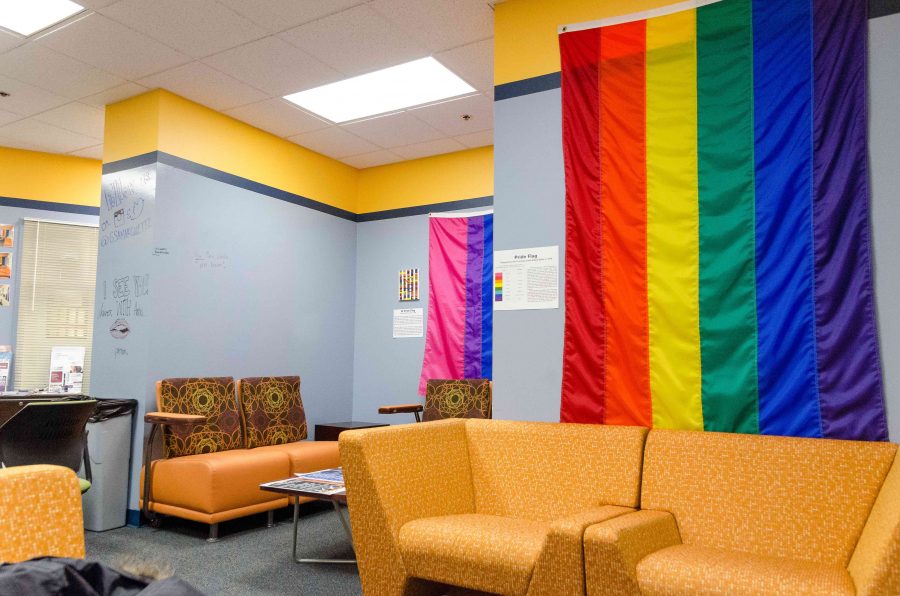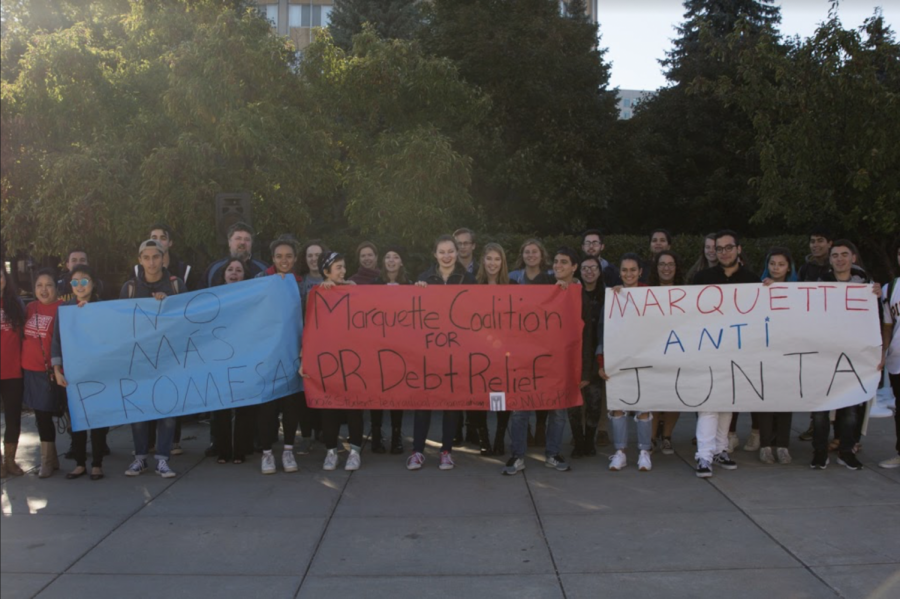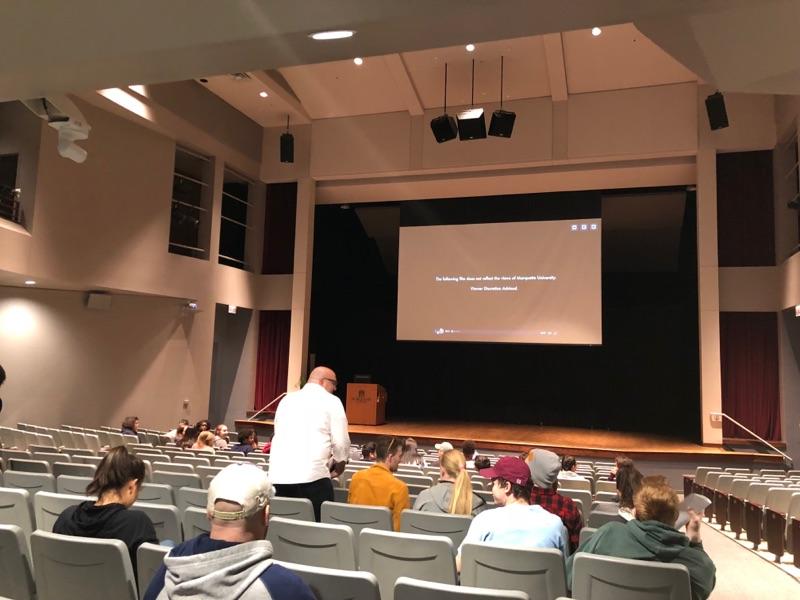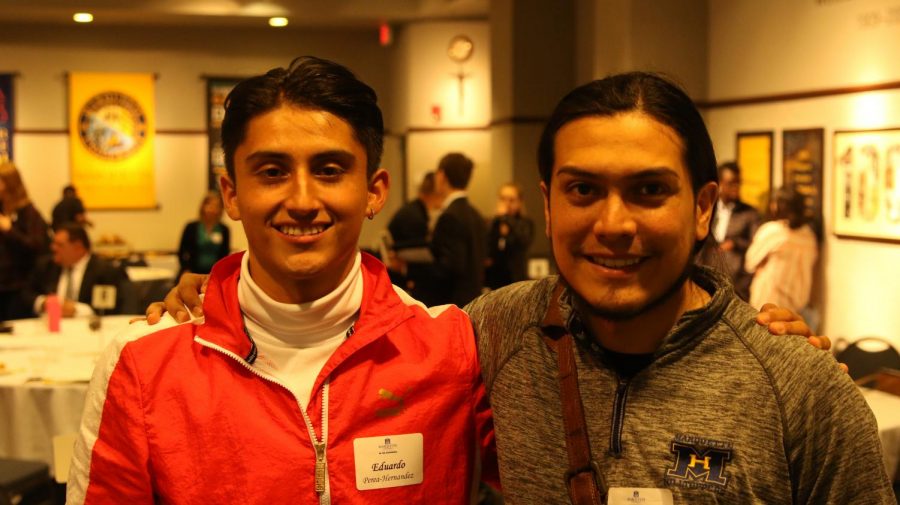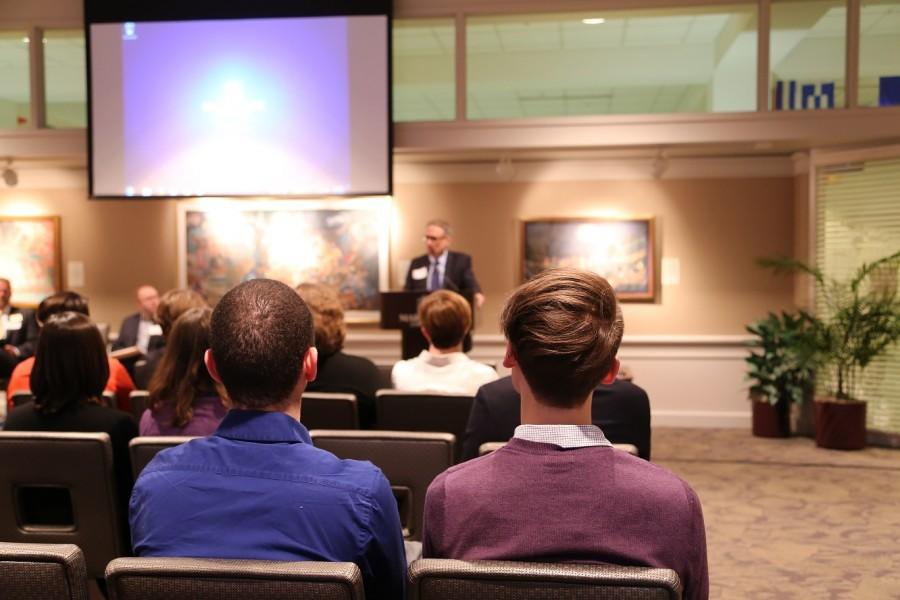This week’s reopening ceremony of the LGBTQ+ Resource Center on campus calls attention to recent laudable efforts by the university to support and embrace the Marquette LGBTQ+ community. In the past, controversy and difficulty have hindered the university’s progress in creating a welcoming environment for students and faculty who identify as part of this minority group. However, the opening of the resource center, among other campus events and initiatives, shows Marquette’s genuine commitment to all its students.
Now, perhaps more than ever, is a significant time to strengthen any efforts that support minority groups on campus. As University President Michael Lovell and other community leaders identified in a letter to the university Monday addressing current U.S. immigration policy, Marquette will always “provide accessible education for all, not some.”
True to the Jesuit ideal of becoming “men and women for others,” Marquette will never create or foster any sort of environment that makes people feel vulnerable. The Jesuit value of care for the whole person extends to all people, and Marquette has shown its dedication to promoting that ideal always, especially during times that are difficult.
In October, the American Society for the Defense of Tradition, Family and Property protested on campus against Marquette’s “gender theory,” specifically gender neutral bathrooms and the resource center. Representatives from the group told the Marquette Wire they believe that through these student services, Marquette violates its own Catholic values.
University Provost Dan Myers, who stood in counter protest across Wisconsin Avenue from the TFP with members of the Marquette community, said in an email, “There is no question that our Catholic, Jesuit mission calls on us to be a welcoming place for all, and we strive to be that welcoming place.”
Coordinator for LGBTQ+ programs and services Enrique Tejada III said in an email, “I believe that it is because of Marquette’s Catholic, Jesuit identity and values that our LGBTQ+ Resource Center is able to operate on a religious and specifically Catholic campus.”
Marquette — along with prominent Jesuit figures like Pope Francis and the Rev. James Martin — refuse to allow the Catholic Church’s complicated relationship with members of the LGBTQ+ community to stand in the way of inclusion and support. According to Myers, several other Jesuit colleges have similar centers or offices that serve LGBTQ+ students.
“I think that there is a sordid history with LGBTQIA+ folks and the entire Christian church,” Tejada said. “However, if we as a university and staff focus on Jesuit and Christ-like values of care, compassion and support, we will find answers to these inquiries and reasons why our center should exist.”
Back in 2010, controversy ensued when the university rescinded an offer to hire a new dean for the College of Arts & Sciences from Jodi O’Brien, a lesbian woman of Seattle University, a Jesuit college in Washington state, who had published scholarly articles on gender and sexuality. A former Marquette spokeswoman told the Milwaukee Journal Sentinel at the time that the decision to withdraw the offer from O’Brien wasn’t about her sexual orientation but rather some of her published works “relating to Catholic mission and identity.” Around 100 students, frustrated by the university’s lack of transparency about the situation, protested the decision on campus.
Today, the university’s support for the LGBTQ+ campus community through this resource center and other initiatives shows that we have taken steps in the right direction and are creating a more accepting environment for future students. These developments demonstrate Marquette’s willingness to recognize areas that need improvement.
As reported in Marquette’s fall 2015 campus climate survey results report, LGBTQ+ students expressed feelings of isolation, discomfort and unwelcomeness here at Marquette. So, although the university has taken strong initiative and made great strides in showing support and fostering inclusion, some change in overall campus attitude is still necessary and students must continue to follow the example that the university has put forth.

